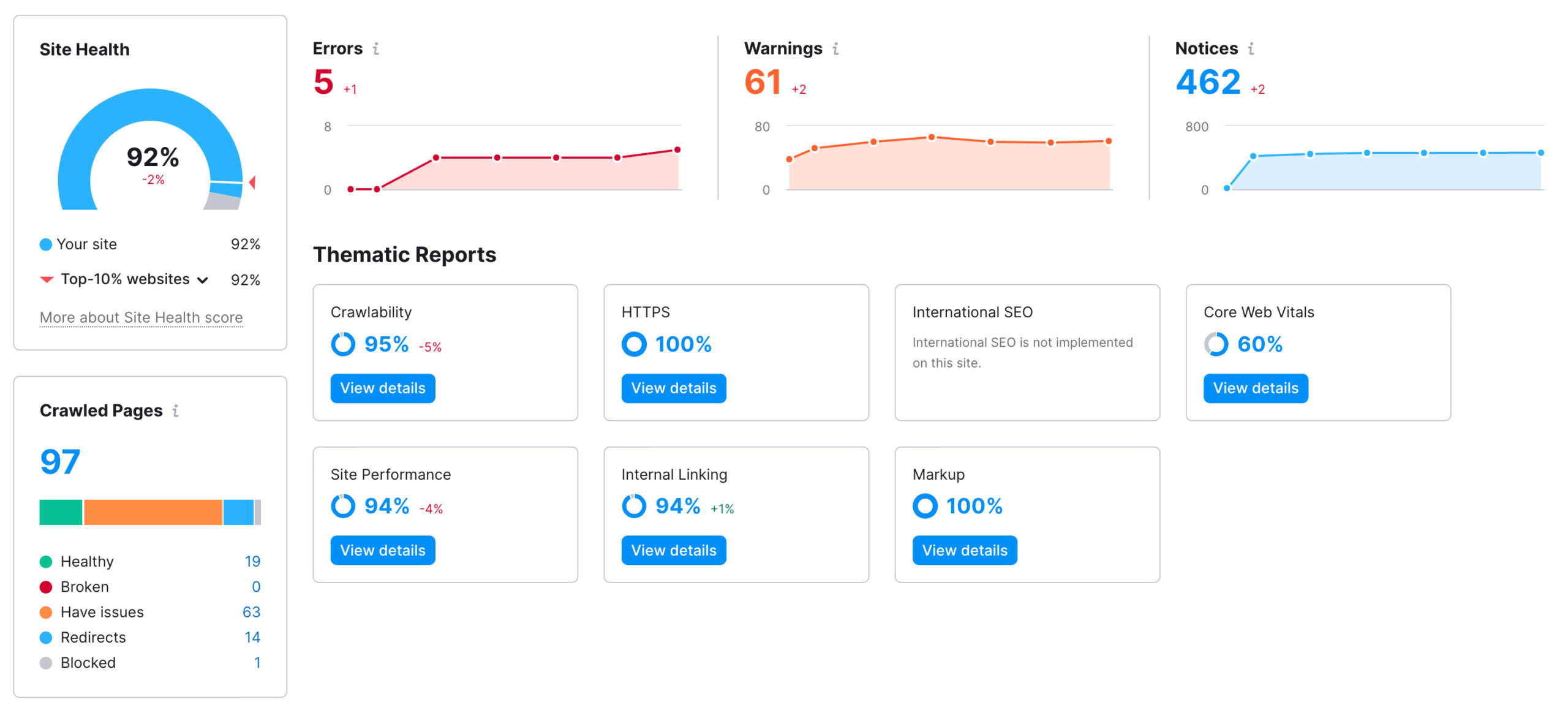
There are many different website optimisation strategies – we can help you improve your website.
Having spent a lot of time and money getting your new website live, the last thing that you want to find out is that it’s potentially struggling in the search results because it’s too slow or there’s important information missing – the website optimisation may not have been done.
Websites are complicated projects and in the haste to get new ones live, it’s easy to overlook some of the smaller details (website optimisation) that can make a huge difference to the success of your site.
Is your website optimised?
Not all website are built the same, so it’s best to get an objective audit done on your site before you go investing in website optimisation services.
The easiest way of checking your website is to use some of Google’s website optimisation tools such as Page Speed Insights. These tools will give your site a ‘score’ out of 100 and suggestions of how best to fix problems.
Other such tools include:
These tests all produce similar results but have different interpretations about what is and isn’t important for your website. The results you get, and suggested fixes, can also be quite technical.
Website optimisation is important, so if you’d like us to run an audit on your behalf, click below.
Potential optimisation issues with your website.
Here are some of the main considerations for website optimisation.
1. Make it mobile-first.
Google indexes most sites mobile-first – this means that it’s the mobile version of your site that it’s checking and including in the index. Don’t just think about the desktop version of your site.
2. Technical SEO.
This covers off all the techy aspects of your site, including the code, scripts, WordPress theme, plugins and any custom development you may have done.
Making sure your site is optimised technically for SEO is also optimised in general.
3. Website speed.
Technical SEO affects your website, but another consideration is hosting. If you have a great site hosted on a cheap shared hosting account, no amount of optimisation will speed up your slow server – best to invest in quality hosting to make sure your website is fast.
4. Content.
Do you have too many large images on your site, is the page size huge? These considerations start with the content of your pages – do you really need an image gallery above the fold that slows the load time of the page to a crawl?
How to optimise your business website.
What do you do about these page speed issues?
So Google is great at telling you what’s wrong with your site, but it’s not so great at telling you how to fix things.
Depending on how your site is built, there are easy fixes and more complicated ones.
WordPress sites have the option of using plugins to fix problems, but they need to be used sparingly and with care.
You’ll often find that whilst it’s easy to compress and minify your code, it can break your site – website optimisation is rarely sorted in a few simple clicks.
Get professional website optimisation help
The good news is that many of Google’s alerts can be fixed relatively easily. Image sizes, for example, can just be a case of removing images that are too large and replacing them with smaller ones.
There are tools for minification and compression, and server response times can easily be rectified by moving your site to a better host.
How we’ll optimise your website
We use Googles tools, as well as several other ‘paid for’ website analysis tools to do a full scan of your site.
This gives us (and you) an objective report on what needs sorting.
From here we can decide what we’re going to do, the best website optimisation approach and what you can do yourself (saving money on our fees).
We’ll examine your site build, theme and plugins (if you’re on WordPress) and suggest the best route of action together with a fixed cost to correct everything.
Why does your site have these issues anyhow?
The web moves quickly. Things change fast and what was ok yesterday is no longer ok today.
If you’ve got admin access to your site, you (or your team) may also have made changes that adversely affect the site (it’s not always the agencies fault).
It’s important to remember that your site is subject to ever-changing Google algorithms and technology – a website project is not something you can set-and-forget – you’ve got to continually improve it and keep an eye on it.
Get it fixed and check it regularly.
Website optimisation services.
Our website optimisation services will take care of all the complicated stuff for you – and the best thing is that you can check the results for yourself – simply by running your site through the same free optimisation tests and seeing the results.
We also offer weekly monitoring of your website ‘health’ and can send you an automated report every week so you can address and stay on top of any problems.
Just like your car, your website needs an annual service and regular check-ups to make sure it’s functioning properly.
Given how competitive placement in the search has now become, don’t spend any money on SEO before you get your site fully optimised – you could be throwing money away without website performance optimisation.

Can you get 100/100?
It’s virtually impossible to get 100/100 in Google’s page speed tests, so common sense is required for your website optimisation checklist!
If you run your site through Google tools AND have Google Analytics installed, it’s going to tell you to improve the delivery of its own scripts!
This means that it’s often not possible to get a full-mark score for the optimisation of your business website.
We can help you to identify what needs to be fixed on your site without having to spend hours trying to achieve the impossible. It’s important to prioritise what is fixed and what your site can live with.
Your site may rely on certain scripts, plugins and other code that can stop working if your site is over-optimised, so we’ll help you achieve the best score possible for your site.
